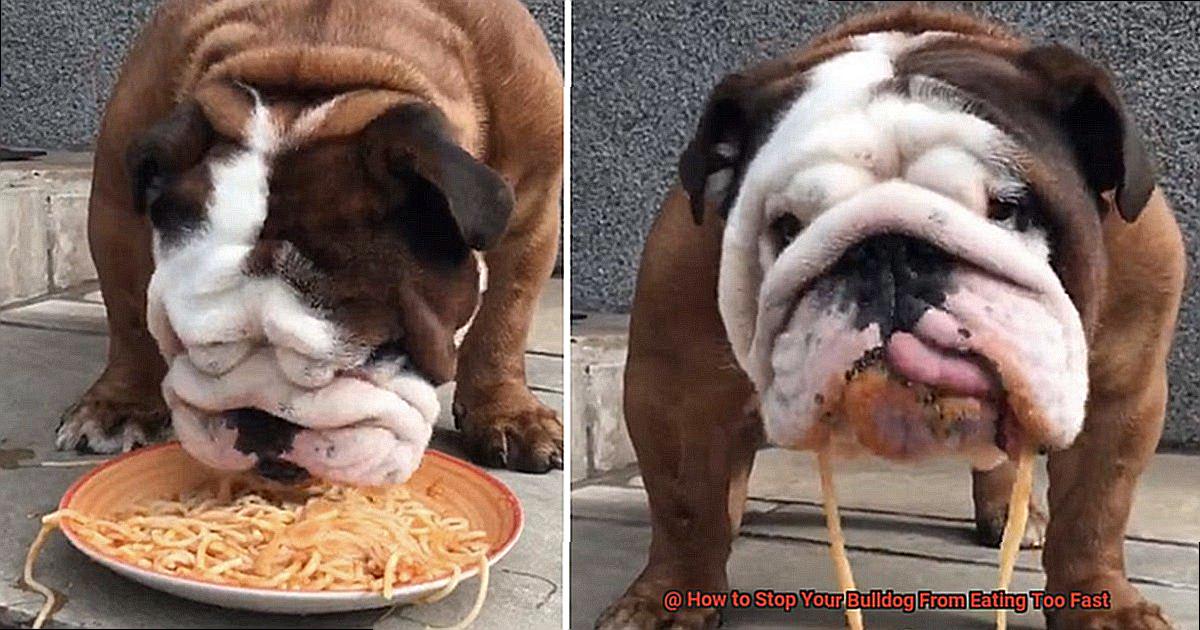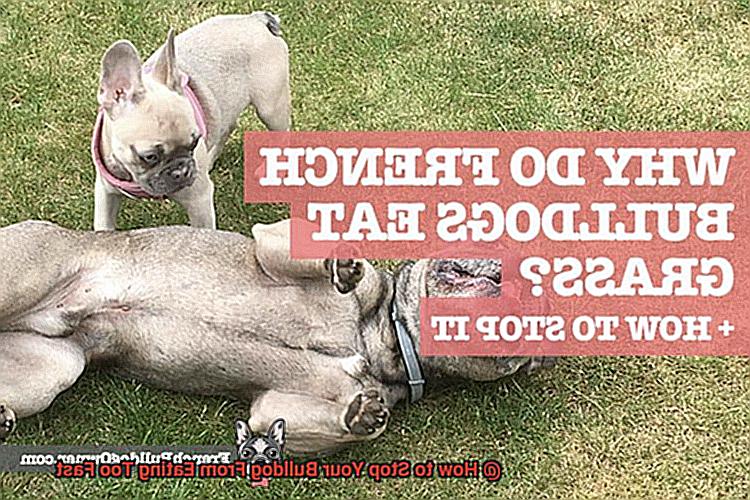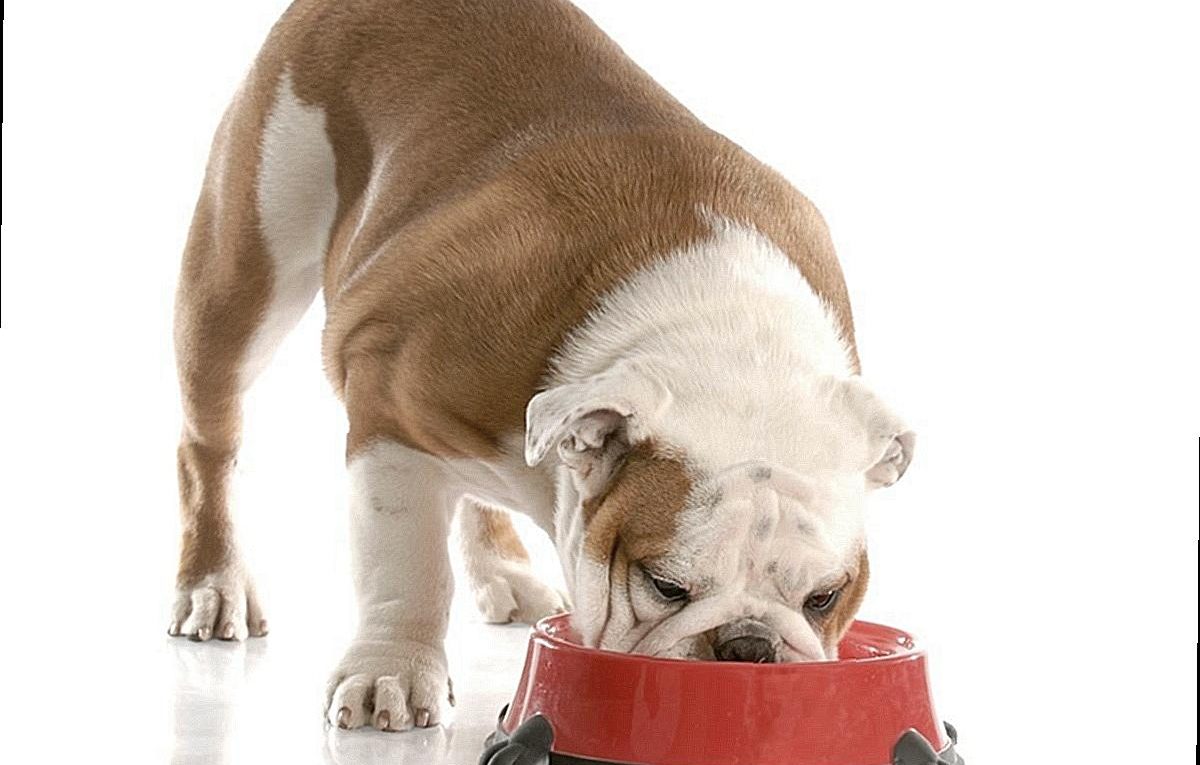How to Stop Your Bulldog From Eating Too Fast?
Do you struggle to keep your bulldog from eating too quickly? You’re not alone. Eating too fast can lead to serious health issues, like bloating and choking. That’s why it’s so important to address this problem head-on.
This blog post will provide the best ways to calm your bulldog’s eating habits. We’ll cover slow feeders, puzzle toys, creating a healthy mealtime environment, and providing healthy snacks in between meals. Plus, we’ll explain the importance of understanding your Bulldog’s individual preferences when it comes to mealtime.
By the end of this post, you’ll have all the information needed to create an effective plan that helps keep your Bulldog safe and healthy while still enjoying their meals. So let’s get started!
Causes of Fast Eating: Identifying what might be causing your bulldog to eat too quickly
Contents
- 1 Causes of Fast Eating: Identifying what might be causing your bulldog to eat too quickly
- 2 Signs Your Bulldog is Eating Too Fast
- 3 Strategies for Slowing Down Mealtimes
- 4 Utilizing Positive Reinforcement
- 5 Setting Up Mealtime Rules
- 6 Making Mealtime Fun and Interactive
- 7 Using Special Bowls and Toys
- 8 Consulting with a Vet or Trainer
- 9 Conclusion
Are you concerned about your bulldog’s fast eating habits? If so, you may be wondering what could be causing this behavior. Rapid eating can be triggered by a variety of factors, such as genetics, stress, anxiety, an unfamiliar environment, a poor diet, food competition, and medical conditions.
Signs of fast eating include eating too quickly without proper chewing or taking breaks between bites, as well as excessive drooling or panting while eating. Eating too quickly can increase the risk of choking or gastrointestinal blockage due to inadequate digestion and absorption of nutrients from the food consumed, as well as dehydration caused by excessive drooling.
If your bulldog is displaying signs of fasting, it is important to consult with your veterinarian about the potential causes and how to address them. Additionally, it is essential to ensure that your bulldog is receiving a balanced diet with all the necessary vitamins and minerals for optimal health.
You can help ensure that your bulldog eats at a healthy rate by addressing any underlying causes and providing a nutritious diet.
Signs Your Bulldog is Eating Too Fast
Eating too quickly can be hazardous for your bulldog and can lead to serious health issues. Paying attention to the signs that your bulldog is eating too fast is essential in order to protect their wellbeing. Here are some key indicators that your bulldog may be eating too quickly:
Gulping down food
If you notice your bulldog gulping down their food without chewing, this could be a sign that they are eating too fast.
Pawing at the bowl
If you observe your bulldog pawing at the bowl or trying to steal food from other sources, this could indicate that they are not taking their time with meals.
Eating too fast
Keep an eye on how long it takes for your bulldog to finish their meal. If they finish within a few minutes, it could mean they are eating too quickly.
Choking and vomiting
Eating too rapidly can cause choking and vomiting, so monitoring your bulldog’s habits is vital in order to prevent these issues from occurring.
Strategies for Slowing Down Mealtimes
Do you want to make mealtimes more enjoyable and healthier for your bulldog? If so, implementing the right strategies is key. Here are some tips to help slow down mealtimes:
Start by using interactive feeders such as slow feeder bowls or puzzle feeders. These can help slow down the eating process and make it more enjoyable for your pet. You could also use food puzzles or treat balls that require your bulldog to work for their food, which will help them focus on their meal and take longer to eat it.
Hand-feeding your dog one piece of kibble at a time is another great way to ensure they savor each bite and slow down their eating speed. And finally, provide smaller meals throughout the day instead of one large meal.
This will help your bulldog learn portion control and give them more time between meals to properly digest their food.
Utilizing Positive Reinforcement
Training your bulldog with positive reinforcement is an effective and cost-efficient way to encourage good behavior. When your pup does something you like, reward them with treats, praise, or playtime.
For example, if you want your bulldog to eat slower, give them a treat each time they finish their meal at a slower rate. Additionally, make sure to provide verbal praise and petting when they eat properly.

This will help reinforce the desired behavior and motivate your dog to continue eating at a slower pace.
Positive reinforcement is a simple and effective method for assisting your bulldog in becoming the best puppy possible.
Setting Up Mealtime Rules
Mealtime rules are essential for bulldog owners who want to ensure their pup’s health, happiness, and good behavior. Establishing boundaries for mealtimes helps create healthy habits and routines that can make mealtime enjoyable.
Different types of mealtime rules can be implemented.
For instance, you can set a specific time for meals, allow only certain foods at mealtimes, and determine how much food should be served at each meal. It is important to consider your bulldog’s individual needs and preferences when creating effective mealtime rules.
For example, if your bulldog prefers wet food over dry food, you may want to establish a rule that only wet food is allowed at mealtimes.
Additionally, it is important to set reasonable limits on the amount of food served at each meal so your bulldog does not become overweight or overeat.
Once the rules have been established, it is important to follow them consistently in order to reinforce the boundaries with your bulldog. You can reward good behavior with treats or verbal praise, and you can discourage bad behavior with gentle reminders or by diverting their attention elsewhere.
By setting up mealtime guidelines for your bulldog, you will be able to create an enjoyable experience that will benefit both you and your pup.
Making Mealtime Fun and Interactive
Mealtime doesn’t have to be a dull experience for your bulldog. With some creative planning and simple steps, you can make mealtime fun and interactive for your furry friend.
Start by using treats, toys, and other forms of positive reinforcement to make mealtime more enjoyable. Slow feeder bowls are also great for slowing down their eating process. To prevent them from eating too quickly, break the food into smaller meals throughout the day.
Creating a calm environment while they eat is also essential. Establish regular mealtimes and stick to them so that your bulldog doesn’t get overly excited when it’s time to eat.
And lastly, don’t overfeed them – if they’re eating too much food, they may be more likely to eat quickly in order to finish it all.
Using Special Bowls and Toys
Specialized bowls and toys can be a great way to help slow down their eating habits.

Specialized bowls are designed to make it more difficult for your bulldog to get food out of the bowl. Puzzle feeders, slow feeders, and raised feeders are all examples of specialized bowls that can help reduce mealtime.
Toys like treat dispensers, interactive toys, and chew toys can also be used to keep your bulldog entertained instead of just focusing on eating. This will help them focus on playing with the toy rather than just eating their food too quickly.
It’s important to choose the right type of bowl or toy for your bulldog so they can still enjoy their mealtime without having to worry about eating too quickly.
Consulting with a Vet or Trainer
Consulting with a vet or trainer can be a great way to get personalized advice and solutions for your pup’s individual needs.
A health specialist can diagnose any underlying health issues that may be causing the problem, as well as suggest behavioral modifications such as feeding multiple small meals throughout the day and adding distractions during mealtime.
They may also recommend supplements, medications, or other therapies to help reduce anxiety and stress levels, which could be contributing to the issue.
Ultimately, consulting with a professional is an effective way to gain insight into how to best care for your furry friend.
However, it’s important to remember that this isn’t always necessary—sometimes simple changes in diet or behavior can be sufficient to solve the problem.
If the issue persists, though, seeking out expert advice from a vet or trainer can provide invaluable support.
Also Read: Can French Bulldogs Eat Popcorn?
Conclusion
If your Bulldog is eating too fast, it can be dangerous to their health and wellbeing. Fortunately, there are several strategies you can use to reduce meal times and keep your pup safe.
Slow feeders, puzzle toys, healthy snacks in between meals, positive reinforcement, and setting up mealtime rules are all great ways to make mealtime enjoyable for your Bulldog.
If the problem persists, consulting with a veterinarian or trainer can help you understand how to care for your dog.




